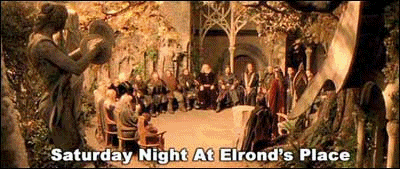The following is solely a rooferauthor's back-and-forth understanding of the situation.
Last night (Friday), Amazon took off the BUY button of all books under the McMillan Publishing umbrella, affecting many of my writing friends who write for, just to name a few, Tor, St. Martin's Press, and Faber & Faber (and don't forget the school books!), making them unavailable for sale. There has been quite an uproar, especially on the Intertubes, among authors, sellers, and readers, all siding one, the other, or none, all castigating one, the other, or both.
Since it is about the book industry and could affect me in the future, I need to process this. There's really nothing I can do because the two giants are negotiating over prices that I can't set. They're doing all the doing and I'm just an author with a small roofing business with which to compare all the finagling going on.
***What is Amazon vs McMillan about?
Well, it depends on who's explaining the Big War. The Amazon side says that they're trying to sell ebooks at $9.99 and mean old MacMillan is telling them in the newest round of negotiations that they can't do that. Amazon is saying that they're all about the readers and MacMillan is not. There is, as far as I know, no official statement.
The MacMillan side says that they're trying to maintain fair competition among all booksellers. In their new negotiations, they're asking Amazon to sell books in a scaled price, i.e. $14.99 to $5.99. From official statement on Publishers' Lunch:
Under the agency model, we will sell the digital editions of our books to consumers through our retailers. Our retailers will act as our agents and will take a 30% commission (the standard split today for many digital media businesses). The price will be set the price for each book individually. Our plan is to price the digital edition of most adult trade books in a price range from $14.99 to $5.99. At first release, concurrent with a hardcover, most titles will be priced between $14.99 and $12.99. E books will almost always appear day on date with the physical edition. Pricing will be dynamic over time.
The agency model would allow Amazon to make more money selling our books, not less. We would make less money in our dealings with Amazon under the new model. Our disagreement is not about short-term profitability but rather about the long-term viability and stability of the digital book market.
I'm interpreting this as MacMillan trying to equate e-books with hardcovers, that if e-customers/e-readers are eager, they can purchase the e-version of books when they first come out at the full price. If they don't want to pay this price, similar to print-readers who choose to wait for the cheaper paperback version, they can wait until the price scales down over time.
Now my interpretation may be wrong but that's how those paragraphs read to me. Here is the link to the entire McMillan formal statement:
PUBLISHERS MARKET/MCMILLAN
Of course, the raging debate narrows down to these facts:
1) e-readers are angry that McMillan wants to raise e-books to $15. Amazon can sell their products at any price they want.
Rooferauthor: I can see their POV. Of course consumers want everything cheap and Amazon is giving them the price they want.
b) Authors are concerned because Amazon took off the BUY buttons for ALL books, meaning, print version of their books can't be bought either. This kind of hardball doesn't make them happy because hey, it's the e-books they're in disagreement with, so why punish the print books too?
Rooferauthor: I also see this POV. But I'm also thinking, readers who want to buy the books can go to Barnes and Noble, Books-A-Million, Borders, and other sites. All that Internetz Shouting might rub the e-readers/Kindle people the wrong way. Of course, authors should provide information on their sites about what's happening and Other Avenues to order their books, even e-versions of them. This, however, doesn't solve the Amazon/Kindle e-readers' dilemma.
iii) "Everyone is just greedy bastards. Everyone makes too much money. Everyone is out to get them. Everyone ought to..." Ah. There are many versions of this kind of scolding. One can't argue against the bitterness. It's an emotional issue for some e-readers. Got it. Ebooks should be cheaper without DRM. Got it. Ebooks can't be treated like print books. Got it.
Rooferauthor: These topics are a whole 'nother can of worms. Since when have retailers make things the price it should be even if the product is cheaply made? It costs Nike $6 to make their shoes in Indonesian factories, but evidently, some consumers are still happily buying those shoes at $50 a pair.
Roofing analogy:
I've been in the business for over 20 years and I've seen something similar happened to the roofing industry. Over the last two decades, big companies have gobbled up all the mid-sized ones. This can be compared to how all the big publishers buying out or merging with each other until there are now numerous publishers like Tor and St. Martins who are actually part of the giant Daddy, McMillan.
Today, in the roofing business, one can survive two ways. One, be super-huge, the kind that have many, many employees, with big trucks and heavy equipment, able to bid on multi-million commercial jobs as well as whole subdivisions, thus giving savings through their accounts with the suppliers, and bringing in bunches of cheaply-paid employees who can do ten or twenty roofs a day to get that profit in spite of the giant overhead.
By giant overhead, I mean these companies have to deal with insurance (workman's comp, liability and health), accounting departments, salespeople, interest payments on property, bills from owning all those company vehicles and construction equipment, maybe tv/radio advertising (I know the yellow pages cost $$$ for those big ads), etc. This is not even counting the silent partners who don't get involve in anything except their share of the profits.
Their pricing of roofs to customers (homeowners) might have to be higher, but they offer an attractive package that some homeowners want--maybe interest-free loans upto 12 months to pay, a job done in a day instead of a week, a "big" name which some of them think = good job (or at least, some sort of guarantee that they could get the company back to fix any problems), etc. etc.
The other model: be super-small, with very few or no employees, with the owners wearing as many hats as they can, including doing the roofing work themselves. With very little overhead, the small company can charge a lot cheaper and make a profit, but they have to work a lot harder because they don't get the same discounts from suppliers. They usually don't have any health insurance (self-employed, plus under five employees) and no big dump trucks or construction insurance beyond the minimum required. They very rarely have the big ads. They don't have to worry about constantly have jobs to sustain the pay and credit; one roof at a time can pay for employees (usually one or two) and expenses, plus a little profit.
If it's like my partner and me, we really only need one roof a week to stay alive. We aren't going to get rich doing that, but it'll pay the bills and we can sustain a so-so standard of living, providing we're careful. We also don't have to worry about huge losses; we don't make any money that job, but at least we're not paying out paychecks in addition to the loss.
On the negative side, we can't compete with the big dudes. There are only two of us; they can do a job much faster than us. They can also, if they decide, eat the loss and bid some jobs lower just to keep their guys working and the company cash flow going. Smaller companies like mine can't do that, so we usually don't take the job or go out of business.
Why am I giving you guys a short course in Roofing Biz 101? And how is that even comparable to Publishing 501?
Well, I can only give you my understand of what is happening. To me, a big company's business model and their profit margin is very different from a smaller one. Besides the extra expenses that smaller companies don't have, they have to take into account that other smaller subcontracting companies may depend on their accounts for their livelihood.
So, back to Amazon. Amazon is one of McMillan's retailers. They also invented the Kindle. To get the e-reading market interested in the Kindle, Amazon lowered their ebook prices, thus taking the loss of what they bought the ebooks for against the profit of selling more Kindles. As I see it, they aren't making any money from the ebooks, but from one of their non-McMillan products. On the way, Amazon is killing the other retailers who can't match that price for the same McMillan ebooks (because they all bought it at, let's say, $15 and not everyone can take a $5 loss).
McMillan would like its other retailers (with their Nooks and their I-Pads) to succeed, so that there is a competitive market for its digital program in the future. It's in their interest not to have an Amazon/Kindle monopoly. They would like all its retailers to have the scale-model it proposed in its new contract (I think Apple has accepted this, but not sure).
Amazon retaliated by pulling all MacMillan books this Friday. Why? Not sure. Maybe to show that they don't need MacMillan as much as MacMillan needs them. I do know that one of their strengths lie in their telling their e-market that it's all about the publishers' greed, thus making quite a number of readers, both e- and print, very angry and vowing one threat or another.
The bone of contention appears to be how much does it take to make an ebook? It's not tangible and there is no overhead of housing them in some storage place. Once it's done, it's just a file waiting to be downloaded. So, an ebook should cost less than $15. For example, Samhain Publishing charges a lot less ($5-8) and they're a thriving company, aren't they? Why can't MacMillan and other big bad publishing companies do the same?
That's just it. They can't. Remember my Roofing 101 above? The big companies have other expenses so they spread the costs of their products around to keep the company going. A small company's smaller overhead, in this case, means less profit to divide, and they're willing to let Amazon play with the price because their ebooks aren't affected. Besides, they're mostly e-books, not mostly print books.
On the other hand, the big guns are mostly print books. The ebook market is growing but not fast enough to sustain their present expenses, with their stable of authors. Losing out to Amazon, one of their retailers, mean that they'd also have to take a loss that perhaps they can't afford to right now (I don't know. I don't want to come off defending them. I really don't know how much it costs for big companies to make ebooks plus their overhead, but I'm thinking closer to double what it takes Samhain). Also, see monopoly concerns above (everyone agrees Amazon is on the way). Lastly, if e-books were to take the place of hard covers in the future, big publishers would like it to have a premium price, just like the hard cover (the logic here is a bit fuzzy).
So, does rooferauthor have a solution?
Heh. Well, one stupid one. Big publisher should form another company under its umbrella that is totally NOT affiliated with the print part. This smaller company should have no employees wearing any other hats but its own. Its overhead would then be similar to that of Samhain and like companies.
Then, after signing their authors and buying the rights to published their books, Big Company can sell the ebook rights to the smaller company, relinquishing all responsibility of production, just the same way it does so when it sells the foreign rights. This agreement can be renewable on a limited basis so authors can renegotiate or whatever other business negotiations that go on in the big business world to make sure they get more money. Thus Big Company now has made its initial "profit."
With the control as well as smaller overhead, smaller company can then produce e-versions of the contracted books at a cheaper cost (no worries about Other Expenses) and sell to Amazon and other retailers at a lower cost and then let the retailers set the price however they want.
Simplistic? Probably, since I haven't really sat down and thought the whole model through. I'm not the one with the problem, you know. I was just thinking, that if a silly small rooferauthor could start trying to come up with a workable solution, these big companies could have done so without playing the billionaire's version of chicken. Right? Just sayin'.
Not that anyone would listen to a rooferauthor.
End Roofing 101. Back to your reading pleasure ;-).
Bear with me while I learn. The first button likes the POST. The second button likes the BLOG site. Please help me by "liking" me. Thanks!
NO NEED TO CLICK TILL I TELL YA: RESERVED FOR NOT SAFE FOR WORK STUFF





























